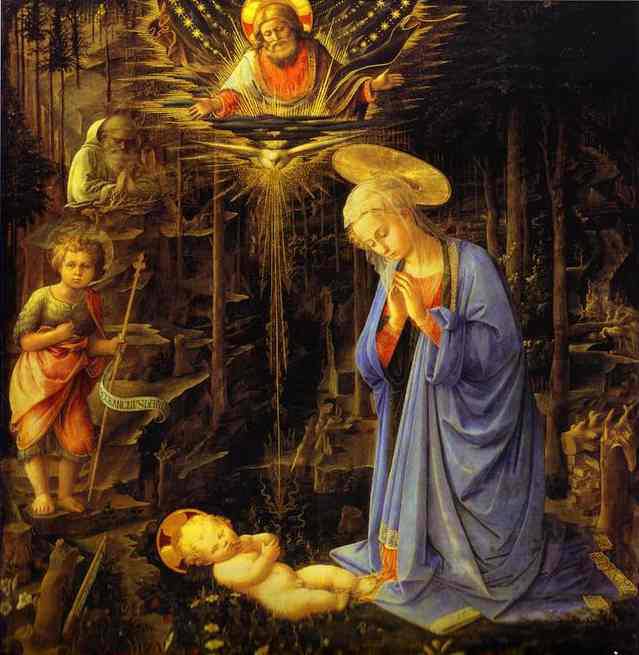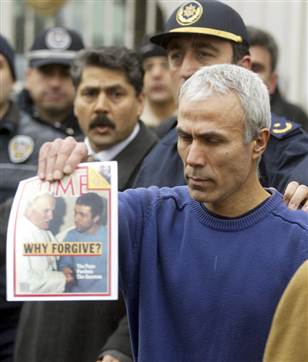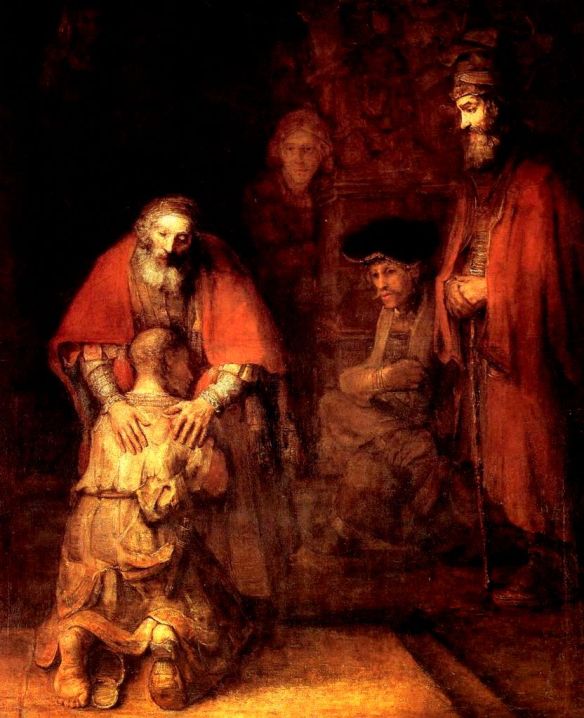
Only the full experience of this capacity [for natality/forgiveness] can bestow upon human affairs faith and hope, thosetwo essential characteristics of human existence which Greek antiquity ignored altogether, discounting the keeping of faith as a very uncommon and not too important virtue and counting hope among the evils of illusion in Pandora’s box. It is this faith in and hope for the world that found perhaps its most glorious and most succinct expression in the few words with which the Gospels announced their “glad tidings”: “A child has been born unto us.” –Hannah Arendt
Agnieszka Holland is much more up my alley when it comes to dealing with World War II, because she puts all the rough edges of history up front and center, which is what I believe good historical cinema should be about. Her breakthrough biographical film Europa, Europa dealt with so many twists and turns that it drove Lanzmann, the director of the classic documentary Shoah, into hysteric fits.
Reading The Human Condition softened me up to watch the new film about Hannah Arendt. The book spends a lot of time discussing the fragile practice of human freedom as it plays itself out in the plurality of the many networks of human relations that encompass us. Freedom is the quintessential obsession of the modern world, but Arendt thinks (this came out of nowhere for me) that freedom requires forgiveness. This is because freedom is by definition unpredictable. Furthermore, even with initial good intentions, as freedom gets channeled through the complex web of human relations, there is a high probably that it will cause harm to others.
This is where forgiveness comes in for Arendt. It also comes in a theological register for her. Her insight is so surprising that reading it felt a little bit like Christmas in July. Only when I read the following words did it become apparent she was telegraphing her intentions while talking about the natality of human freedom, its ability to give birth to totally unexpected, almost miraculous possibilities:
“The discoverer of the role of forgiveness in the realm of human affairs was Jesus of Nazareth. The fact that he made this discovery in a religious context and articulated it in religious language is no reason to take it any less seriously in a strictly secular sense. It has been in the nature of our tradition of political thought (and for reasons we cannot explore here) to be highly selective and to exclude from articulate conceptualization a great variety of authentic political experiences, among which we need not be surprised to find some of an even elementary nature.”
So much for the separation of church and state. She really buries the ditch between revelation and history with that.
Arendt goes on to comment upon the practicality of the various admonitions to forgive endlessly that issued from the lips of Jesus (7 times and so on):
“Crime and willed evil are rare, even rarer perhaps than good deeds . . . Trespassing is an everyday occurrence which is in the very nature of action’s constant establishment of new relationships within a web of relations, and it needs forgiving, dismissing, in order to make it possible for life to go on by constantly releasing men from what they have done unknowingly. Only through this constant mutual release from what they do can men remain free agents, only by constant willingness to change their minds and start again can they be trust with so great a power as that to begin something new.”
How scandalous is this in a world where we’re constantly grinding old axes instead of starting anew? Is it possible to live this way? But is it possible to live otherwise?
These are questions I’d like to revisit sometime with regard to Poland, especially since the complexities of its history tend to be so frequently flattened out, I would say Orientalized, by Western scholars. (You can take a look at the comments at the end of this post for concrete examples of what I mean.)
Finally, in a Girardian vein avant la lettre, she contrasts the liberating freedom of forgiveness with the automation of vengeance (which is painfully familiar to anyone who has more than one kid, especially if their age differential is small):
“In this respect, forgiveness is the exact opposite of vengeance, which acts in the form of re-acting against an original trespassing, whereby far from putting an end to the consequences of the first misdeed, everybody remains bound to the process, permitting the chain reaction contained in every action to take its unhindered course. In contrast to revenge, which is the natural, automatic reaction to transgression and which because of the irreversibility of the action process can be expected and even calculated, the act of forgiving can never be predicted; it is the only reaction that acts in an unexpected way and thus retains, though being a reaction, something of the original character of action. Forgiving, in other words, is the only reaction which does not merely re-act but acts anew and unexpectedly, unconditioned by the act which provoked it and therefore freeing from its consequences both the one who forgives and the one who is forgiven. The freedom contained in Jesus’ teachings of forgiveness is the freedom from vengeance, which incloses both doer and sufferer in the relentless automatism of the action process, which by itself need never come to an end.”
What’s most disappointing is how Arendt wants to limit the act of forgiveness to small offenses, precisely the typical everyday stuff that happens seven times seventy times a day. She ignores Matthew 5:44 in the collection of Gospel quotations she uses to ratchet down the applicability. This can, in part, be explained by the fact that she is writing not long after the Holocaust, which tested the limits of forgiveness like no other event in history. On the other hand, the triviality of the acts she counts as forgiveness severely undercuts the ontological weight Arendt attributes to the creativity inherent in the act of forgiveness. It is a contradiction she does not work out in The Human Condition.
The film, more or less follows the same tracks. In the film she continually struggles to separate out the “banality of [Eichmann’s] evil” from the unforgivably monstrous end result of his acts. Besides the anonymous readership of her New Yorker articles, her (soon to be ex-)friend since their student days under Heidegger, Hans Jonas, is her most strident critic. He thinks her banalization of evil forgives monsters like Eichmann and he cannot stomach it.

Mehmet Ali Agca, the gunman who shot Pope John Paul II in 1981, holds up an issue of Time magazine outside a military recruitment center after being released from prison in Istanbul on Thursday. Agca served more than 25 years behind bars in Italy and Turkey.
But what if Hans Jonas was mostly right, save for his disbelief in the power of forgiveness to cure us from vengeance even in situations of the most extreme evil? I’m reminded of the “Letter of Reconciliation of the Polish Bishops to the German Bishops,” where the bishops of a country that lost six million of its citizens (both Jews and Catholics) to the Soviets and Nazis were asking the Germans for forgiveness for the crimes Poles committed against the Germans during the war. John Paul II was one of the signatories of this document. He carried over its spirit into a papacy highlighted by apologies and attempts at healing age-old schisms that made so many decent people cringe (a bit like Hans Jonas in the film) and not enough people took seriously.
In all of this it’s important to remember that the line between victims and victimizers is very thin. It is not uncommon for former victims to turn into victimizers. Take the example of Hitler and Germany. Would the horrors of WWII have been possible without the punitive measures imposed upon Germany by France after WWI? In fact, the French were so vengeful that the Germans only finished paying back their reparations in 2010.

We celebrated Rembrandt’s birthday, the painter of the best known images of forgiveness, about a week ago.
I realize that what I’m exploring here is much more perverse than the shenanigans of Deleuze and Guattari. The shift I am tentatively proposing is akin to seeing the Parable of the Prodigal Son as the Parable of the Prodigal Father. I think this is what Philippians 2:5 might mean. I’m still trying to figure it out. It seems to make more sense of the rough edges of my own life, and the very rough edges of both my countries (Poland and the USA), than the “natural” culture of retribution.
There are ways of reading what I’ve written here as monstrous. Go ahead. I can’t stop you. Comfort yourself with vengeance and resentment, but don’t let me know how that’s working for you. It generally hasn’t worked very well for me.
The film hints at this too as it closes with Arendt, who wrote her thesis on St. Augustine, making the classical argument that evil is a privation (another way of saying that it is “banal”?) of the good, which is truly radical, because it is the creative root of reality.

Pingback: Eternity in a Dunghill: Infinity & Perspective | Cosmos the in Lost
Though perhaps not central to this post, I am interested to understand what about The Lives of Others the author hated so much.
“The Lives of Others” sentimentalized the experience of East Germany too much, although not as much as “Good Bye Lenin!”
One frequent follower of my blog characterized my writing as being full of too much “unredeemed darkness.”
I don’t think he meant it as a compliment, but I’m with Milan Kundera when he says black comedy is Central Europe’s #1 export.
Here’s a small taste of what I mean:
Pingback: First Links — 8.1.13 » First Thoughts | A First Things Blog
Could you be more specific about how the Livers of Others sentimentalized East German history? I hated Goodbye Lenin, but LOE is one of my all time favourite films. ‘Of course’ statistically such a huge transformation as happens to the secret policeman is unusual, but the film is about the monstrous transformative power of love.
It might be my Central European cynicism, but I didn’t find the monstrously transformative power of love as it was depicted in this film. The ending is what rubbed me the wrong way. But like I’ve said somewhere else in this thread, I’m biased.
Pingback: First Links — 8.1.13 - CATHOLIC FEAST - Every day is a Celebration